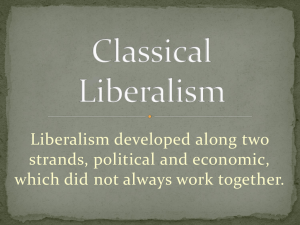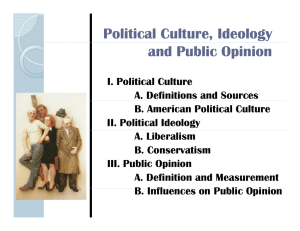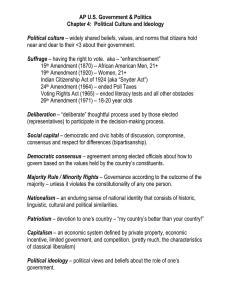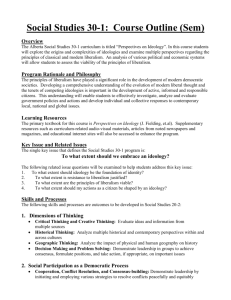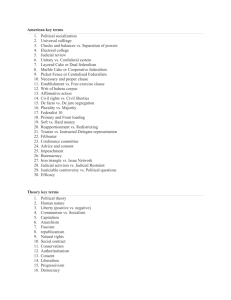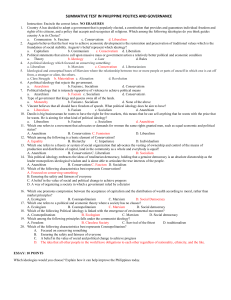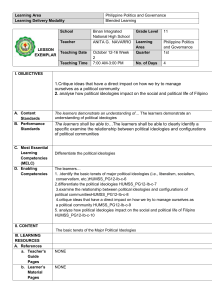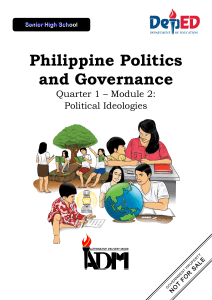Chapter 2: Ideology & Philosophy
advertisement
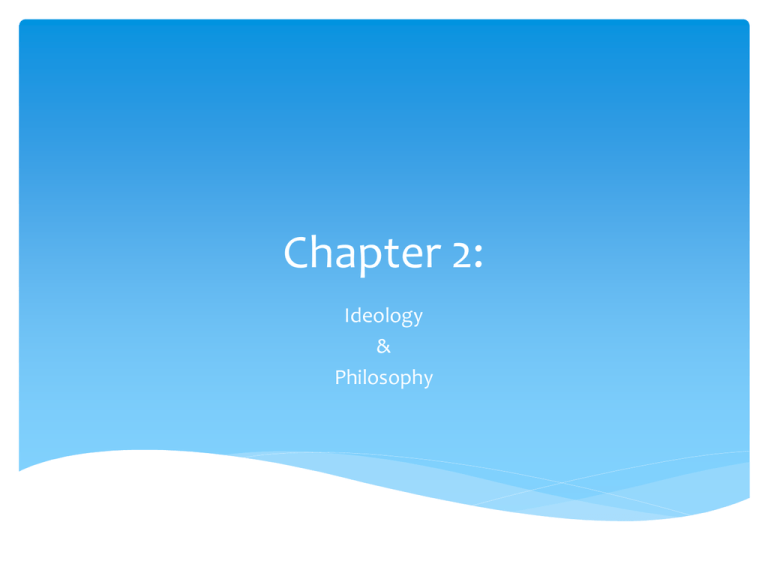
Chapter 2: Ideology & Philosophy Ideology An organized set of ideas that modify one another Helps individuals make sense of political issues (personal use) Can help leaders influence public in accepting or rejecting policies (public use) American Ideologies 1. American Liberalism: Variant of more general political science defined liberalism; Important to American Liberals to seek to create equality of people so give authority and legitimacy to government to do this; Seek to maintain and protect freedom of expression. Not necessarily same as Democrats. American Ideologies 2. American Conservativism: Also a form of more generally defined liberalism in political science Does not like government intervention Willing to let government help maintain morality Not necessarily same as Republicans Liberalism Both American liberalism and American conservativism fall under this umbrella Developed in 18th-19th century in Europe along with conservatism and socialism—three main ideologies political scientists debate Liberalism Idea that government should help people develop to their fullest potential Believe people should be responsible for themselves as much as possible so government should be limited Suspicious of power Favor a view of politics and choice going together Conservativism Very different than American conservatism Main goal of government is to create stability in communities Based on hierarchy of power (leaders and people have reciprocal responsibilities) Not suspicious of power Power should be in hands of traditional class of rulers (ex. Queen) Socialism States or localities consist of different classes of people who are in constant conflict Believe working class should take power in state and control industry to creat a just society of equality Communism More militant form of socialism A political structure that promotes the establishment of a classless and stateless society based on common ownership See Karl Marx Facism An authoritarian political ideology that is concerned with notions of cultural decline or decadence Seeks to achieve a national rebirth by exalting the natin or race, and promoting cults of unity, strength and purity. Example: Benito Mussilini of Italy Neoliberalism Political ideology that supports economic liberalism as a means of promoting economic security Free markets, free trade, and privatization More focus on economy than traditional liberalism Political Identity Also known as identity group A group of people with a shared set of ideas (in this case political ideology) Think their ideology defines them
